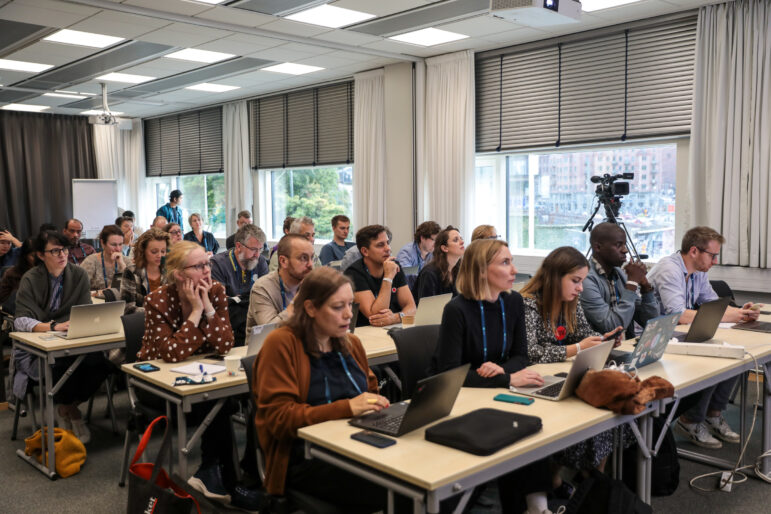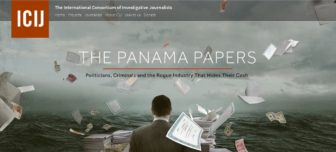

Three “Musts” for Today’s Investigative Journalist
Journalism is by definition investigative. However, the depth and scope of possibilities to unearth and bring to light wrongdoings of public interest has increased manifold, thanks to the way the Internet has been evolving in the last decade.
Facts and discourses can be verified across borders, since most information is searchable globally. Data-crunching software can enable a journalist to spot a criminal pattern or abusive commercial practices in minutes. The possibility of classifying and extracting information from massive sets of leaked documents in coordinated global investigative journalism efforts, have made it possible for reporters to provide evidence on shady dealings on a global scale.
Social networks, transparent government practices, public databases, image recognition, mapping, geo-location and open source tools – most of them free – have grown exponentially. They provide an opportunity to any citizen with a computer or a smartphone, special training and good intuition to expose lies behind wars. And free applications and software make it easy for reporters investigating a public interest issue to link a name with a phone in many places of the world, or track criminals’ movements by connecting their usernames and locations.
Of course, journalists still have to do the tedious digging and street reporting, cultivating sources, and clinging on to stories until they make sense. They must have the courage to resist powerful pressures to give up, even when these seem unbearable. But to be a true investigative reporter today; to be able to cope and respond to challenges posed by globalized and sophisticated trends of crime, corruption and environmental depredation, among other evils, it is indispensable to fine-tune the old philosophy with three new practices: be Open, Systematic and Safe.
To be ‘Open’ means to look beyond the borders of your country. While it is true that most people prefer local stories, finding the links to the outside world would probably make them better, as facts can be widely verified and contrasted. Hence, if a reporter finds a corporation polluting a river in her country, she can go to international resources, such as Organized Crime and Corruption Reporting Project’s (OCCRP) Investigative Dashboard, or to the Bureau of Investigative Journalism’s Corporate Watch. She may find that this same company is owned by an industrial group with equally poor environmental practices elsewhere.
Sometimes a story is too dangerous or too complex for a reporter to cover it alone. So to be “Open” also means to collaborate, sometimes even with media competitors. Moreover, it implies that investigative reporters need to work with experts of other professions, which is partly what, for instance, Finance Uncovered and Thompson-Reuters’ reporting on illicit finance in Africa attempt to do in their cross-border investigations.
 To be ‘Systematic’ entails a proficient use of tools and software to scrape data and clean it; to organize and visualize it so that the numbers can tell the story. This is what India Spend does so well to explain, for example, the magnitude of pre-trial detention in India, or what the Philippines Center for Investigative Journalism did to profile this year’s candidates in the general elections. The Global Investigative Journalism Network (GIJN) has, among many other resources for investigative journalists, a complete list of tools to get anyone started on data journalism.
To be ‘Systematic’ entails a proficient use of tools and software to scrape data and clean it; to organize and visualize it so that the numbers can tell the story. This is what India Spend does so well to explain, for example, the magnitude of pre-trial detention in India, or what the Philippines Center for Investigative Journalism did to profile this year’s candidates in the general elections. The Global Investigative Journalism Network (GIJN) has, among many other resources for investigative journalists, a complete list of tools to get anyone started on data journalism.
There is another side to practicing a systematic investigative journalism. It means to look for information in an efficient way, for example, having at hand a template to continuously request public information and even inviting your readers to use it, like Atlatszo.hu does. Investigative journalism of this kind can also mean systematically encouraging the public at large to help you complete investigations with data, documents, photos, like the OCCRP does with its OCCRP Leaks. Finally, reporters must be systematic in doing their searches. There are sites that help a reporter to connect a domain with a name; or see social media activity underway in a given place. These and many other tools and resources are explained by Paul Myers in his Research Clinic.
The third condition that an investigative journalist must include in their daily routines is ‘Safety’: physical, legal and digital. Watching out for yourself, your data and your sources in the digital environment is mandatory and there are many easy to use tools and tutorials – such as Tactical Tech’s resource-packed website – that can guide journalists. Physical security and legal protection are vitally important habits and below is a list of resources and organizations, which provide security advice and support to journalists.
Resources to Protect Digital and Physical Security
Take This Survey, Then Take These Steps
An article by Jennifer Henrichsen hosted on CPJ’s Journalist Security Blog. It asks a series of simple questions aimed at prompting you to think about your personal digital security, and then gives you a number of key tips that can help you improve your digital security.
Article 19’s Iran Online Video Series
These short videos offer an introduction to some of the key concepts behind best practices in digital security. Each one includes Farsi subtitles and direct links to the referenced software and guides. It was originally aimed at activists in Iran, and is a good resource for freelancers who are planning on working in a region with extensive state censorship.
CyberArabs
This YouTube channel offers short, useful animated videos on digital security topics in Arabic. It is particularly useful for freelancers working in the Middle East and North Africa. Topics include how to use proxies, how to avoid computer viruses and how to get more privacy when using a mobile phone. Their website offers more extensive coverage of digital security issues in Arabic.
Tactical Technology’s Resource Platform
It provides one of the best digital safety guides and resources available on the web. It is accessible to ‘non-techies’, looks in-depth into many of the issues surrounding topics of research, safety, protection of data and distribution of information.
SKEyes’s Journalist Survival Guide
This guide is broken into nine clear lessons, including three on digital security. Each of the resources are organized by focusing on a practical goal or possible situation. Great animated videos guide you through each topic, which are accompanied by useful descriptions in .PDF.
Storymaker’s Security Guide
Storymaker is an open source, Android-based app that aims to help journalists produce news as safely and securely as possible. Part of this app includes a very useful and concise digital security guide. It is one of the best mobile-specific information on the subject.
Rory Peck Trust – Safety Resources for Freelancers
One of the best collections of field safety and digital security tools, situation/environment assessment techniques etc. Their exercises and assessments can be tailored according to specific situations, trips, locations and types of investigations.
IFEX Global Network of Media Support Organizations
IFEX provides a map of global member organizations that are ready to offer local support to journalists who need legal, security, or other types of assistance. It is good to get in touch with them when you have projects in a country where IFEX members are available.
This story originally appeared in the October 2016 newsletter of the Open Society Foundation’s Program on Independent Journalism and is reprinted with permission. Note: The Program on Independent Journalism is a donor to GIJN and the Global Investigative Journalism Conference.
 María Teresa Ronderos is director of the OSF Program on Independent Journalism. Ronderos came to OSF from Semana, Colombia’s leading news magazine. She was also co-founder and editor of VerdadAbierta.com, a website that covers armed conflict in Colombia.
María Teresa Ronderos is director of the OSF Program on Independent Journalism. Ronderos came to OSF from Semana, Colombia’s leading news magazine. She was also co-founder and editor of VerdadAbierta.com, a website that covers armed conflict in Colombia.














